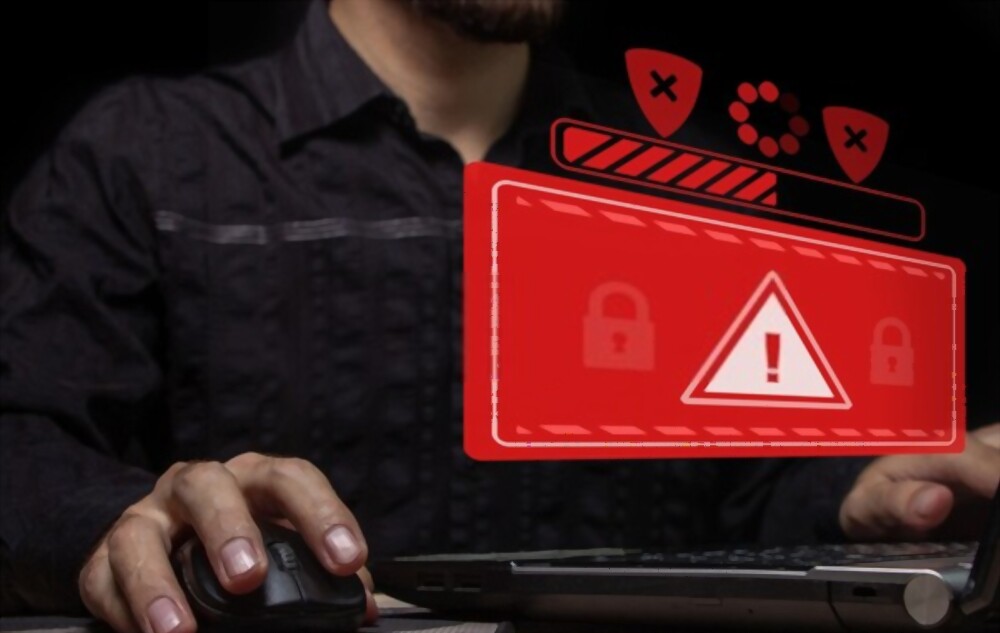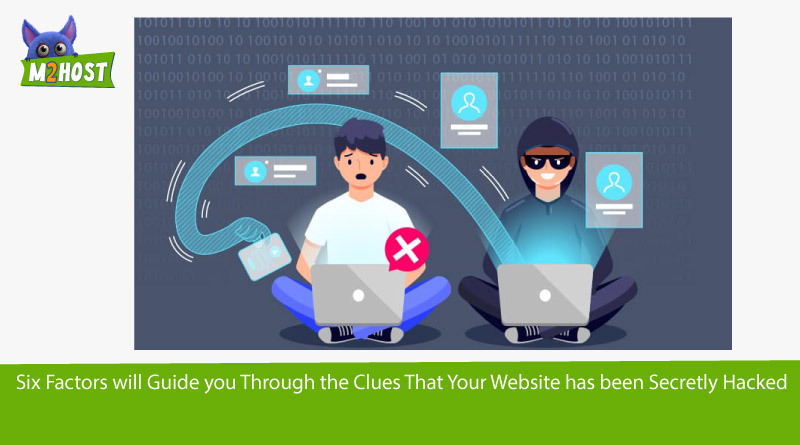Is something odd occurring on your site? Have you encountered a lot of spam or suspicious advertisements? Is Google blocking your website? Remember that if your company is attacked by hackers, they might potentially do a lot of damage. Worse, they upload the virus to your website, which will make it unusable.
Website attacks are time-consuming because they flood your site with unwanted advertisements and divert people to potentially dangerous domains. Furthermore, both your web host and the major search engines have prohibited access to your site.
Being hacked can severely damage your online reputation. Thus, it is crucial to be aware of the essential indications that suggest that your website has been hacked. But before we get into the warning signs, it’s important that we obtain a basic understanding of WordPress hacking.

Can you explain what a website hack is?
Several methods exist for breaking into a website. Unauthorized FTP accesses to your web administrator account are frequently the starting point. The language of machine-to-machine communication.
It’s the standard method by which computers exchange data with one another. If a hacker is successful in gaining a connection to your login, they will upload some hazardous software to your website. The malicious code can make your site display inappropriate content or promote services or products offered by your competitors.
Even worse, the code could inadvertently spread malware to the computers of your end customers. Your website’s popularity on the web can take a serious hit if hackers gain access to it.
When a user visits your website, a warning screen will appear
Customers using your website to visit it via a browser are being warned that your site is under attack. If people try to access your website and see this message, they should know that Google has banned it. It’s important to note that Google’s blacklist system is used by many browsers, including Chrome, Opera, Firefox, and others, to display warning messages.
Normally, those who visit your website will see a warning that reads, “The site ahead contains malware.”
Your website is currently inaccessible due to action taken by your hosting provider
You should know that hosting providers frequently do malware scans on their systems. Frequently, they take down infected websites to curb the spread of malware. Some of the most common triggers that cause a web host to temporarily disable a site are listed below.
A virus or other malicious program is currently running on your server.
The server hosting your website often sends out spam or scam emails.
Your website’s server has high CPU use because of the harmful code you’ve included
You will not be given permission to the Admin Dashboard at this time. Consequently, if hackers compromise your website, they will lock you out of the control panel. One of the most telling signs of a hacked website is being unable to access the administration dashboard.
When hackers gain access to your administrative account, they change their passwords. Also, malicious hackers would alter your phone number, rendering your alerts useless.
It also means that your password is useless. There is no way to get the reset link after requesting a reset. But attackers can easily make a new admin account for themselves. To achieve this, they would change the admin account and remove the privileges associated with the prior admin account, making it so that you may still log in but have limited access.
Your website’s source code contains cryptic JavaScript
Strange and indecipherable JavaScript in your site’s source code is a warning sign that it’s been hacked. The code must be removed immediately. Note that malicious JavaScript is commonly used to steal personal information like passwords and credit card details.
Users are redirected to hacker-controlled domains using JavaScript. Pop-ups and spam advertisements are also generated by JavaScript. Keep in mind that malicious JQuery code is an unmistakable sign of an attack on your website.
The JQuery code is also responsible for sending sensitive data from the transaction page to hostile servers. If this happens, customers will avoid your online shop. Conducting regular security audits is a great method of warding against malicious programs like this.

Analytics Reveals Some Weird Information
If you own a website, you can view its statistics at any time. The number of people who visited your website last week, for instance, might be easily calculated in real-time. Your website is under attack if you notice any irregularities in the data.
There’s probably been a hack on your site if a lot of people are leaving. Remember that cybercriminals can cause a sudden increase in traffic by diverting people from other sites to yours.
But you can’t assume that they have your best interests at heart. Users that visit your site have likely been infected and are being defrauded. Changing internal website connections to external ones is another way hackers might trick users into clicking on malicious links.
In order to steal your money, hackers will often create an exact copy of your website. The change in analytics data could have been the result of hacking, but there are other possibilities as well. Due care should be taken when analyzing results.
Unanticipated changes to webpage material
Hackers modify the site’s content for political, financial, or other reasons. It’s very uncommon for them to alter not just the links but the entirety of your website’s content. Furthermore, they may alter the data in ways that are difficult to spot, for as by defacing it or making tiny additions or deletions.
Obviously, the popularity of your website will suffer as a result of this update in content, so please bear that in mind. One of the best ways to monitor updates to your website’s material is to regularly review the list of pages. You should investigate the content thoroughly if you notice changes that you don’t recognize as your own.
In addition, you should take immediate action to safeguard the website if any content has been changed without your knowledge. Having content that is overly hostile to your company can hurt its appeal.
When your website has been compromised, what should you do?
There is no canonical set of signs that indicates an assault on your website. As more sophisticated technological infrastructures become available, hackers are increasingly preoccupied with more involved strategies for launching cyber-attacks. If you find that your website has been hacked, you should follow these steps.
It’s important to do some serious digging
Your website is not under attack just because it is slow to load or breaks occasionally. To put it another way: you need to get to the bottom of things. When new plugins are installed, websites might become sluggish and unresponsive. You won’t learn anything useful by assuming things without first checking them out. Please seek the help of an expert if you need assistance.
Get Rid of the Wrong Codes
If your code is buggy or unresponsive, hackers may find a way to compromise your system. Verify each line of code for accuracy. In addition, removing unused plugins is one of the best ways to speed up your site and increase its responsiveness. Ensure that your website is running the most recent version of any necessary software.
Protect your website using a firewall
A firewall is an excellent tool to use in order to keep hackers out of your website. A firewall could help stop hacking attempts in the future. You could stop malicious bots from accessing your website with the use of a web application firewall.
Why You Need a Reliable Web Host
In no uncertain terms, it is essential to create your own safety mechanisms. A trustworthy web host, however, will provide you with a number of additional safeguards to ensure the safety of your website. Common security precautions include anti-virus software, firewalls, and SSL certificates. A free SSL certificate and built-in protection against malware and viruses are included in all m2host web hosting packages. With this, your website and information are safe.
Take Google off the list of banned sites
In order to get your website off Google’s blacklist, it is best to let them know after you have cleaned it up. Keep in mind, though, that Google will check your site for spyware. In addition, inform your web host that the site has been cleaned. If they want to keep their account active, they have to keep the site tidy.
Conclusion
Dealing with a website that has been hacked is a living nightmare. It is possible that the amount of time and effort required to clean and repair an infected website will have a detrimental effect on the reputation of your company. Thus, it is required upon you to apply due prudence.
Please only use plugins that can be trusted and are secure.
Make sure you go with a web host that you can rely on.
By routinely carrying out audits, you can ensure that security tests on your website are passed.
Continue to keep an eye on the variables that were stated above.


